
Montreal: A Mélange of Culture and Charm
Montreal, the largest city in Canada's Quebec province, is a captivating blend of old-world charm and modern dynamism. Nestled on an island in the Saint Lawrence River, Montreal is renowned for its rich history, vibrant arts scene, and diverse culinary landscape. Visitors can meander through the cobblestone streets of Old Montreal, where centuries-old architecture and quaint boutiques offer a glimpse into the city's past. The iconic Notre-Dame Basilica, with its stunning Gothic Revival architecture, is a must-see landmark that leaves a lasting impression on all who visit. Montreal is a city that celebrates its diverse cultural heritage. The city's neighborhoods, such as the Plateau, Mile End, and Little Italy, each have their own unique character and charm. Festivals are a cornerstone of Montreal's identity, with events like the Montreal International Jazz Festival, Just for Laughs comedy festival, and the world-famous Cirque du Soleil calling the city home. Art enthusiasts will find a treasure trove of galleries and museums, including the Montreal Museum of Fine Arts and the contemporary art haven, Musée d'art contemporain de Montréal. Food lovers will be in paradise in Montreal, which boasts a culinary scene that reflects its multicultural population. From the iconic smoked meat sandwiches at Schwartz's Deli to the beloved bagels from St-Viateur Bagel, there is no shortage of delectable treats to savor. The city's many markets, such as the Jean-Talon Market, offer fresh local produce and artisanal goods, providing a true taste of Montreal. Outdoor enthusiasts will also find plenty to enjoy in Montreal. Mount Royal Park, designed by the same landscape architect who created New York City's Central Park, offers stunning views of the city skyline and opportunities for hiking, biking, and picnicking. In the winter, the park transforms into a wonderland for ice skating, sledding, and snowshoeing. The city's proximity to the Laurentian Mountains and the Eastern Townships also makes it an excellent base for exploring the great outdoors.
Local tips in Montreal
- Learn a few basic French phrases. While many locals speak English, using French can enhance your experience.
- Use the BIXI bike-sharing system to explore the city. It's an eco-friendly and fun way to get around.
- Visit Montreal during festival season, especially in summer, to experience the city's lively atmosphere.
- Try the local specialties like poutine, bagels, and smoked meat sandwiches for an authentic taste of Montreal.
- Take advantage of the city's extensive underground network of shops and restaurants, especially during the colder months.
Neighbourhoods in Montreal
Montreal: A Mélange of Culture and Charm
Montreal, the largest city in Canada's Quebec province, is a captivating blend of old-world charm and modern dynamism. Nestled on an island in the Saint Lawrence River, Montreal is renowned for its rich history, vibrant arts scene, and diverse culinary landscape. Visitors can meander through the cobblestone streets of Old Montreal, where centuries-old architecture and quaint boutiques offer a glimpse into the city's past. The iconic Notre-Dame Basilica, with its stunning Gothic Revival architecture, is a must-see landmark that leaves a lasting impression on all who visit. Montreal is a city that celebrates its diverse cultural heritage. The city's neighborhoods, such as the Plateau, Mile End, and Little Italy, each have their own unique character and charm. Festivals are a cornerstone of Montreal's identity, with events like the Montreal International Jazz Festival, Just for Laughs comedy festival, and the world-famous Cirque du Soleil calling the city home. Art enthusiasts will find a treasure trove of galleries and museums, including the Montreal Museum of Fine Arts and the contemporary art haven, Musée d'art contemporain de Montréal. Food lovers will be in paradise in Montreal, which boasts a culinary scene that reflects its multicultural population. From the iconic smoked meat sandwiches at Schwartz's Deli to the beloved bagels from St-Viateur Bagel, there is no shortage of delectable treats to savor. The city's many markets, such as the Jean-Talon Market, offer fresh local produce and artisanal goods, providing a true taste of Montreal. Outdoor enthusiasts will also find plenty to enjoy in Montreal. Mount Royal Park, designed by the same landscape architect who created New York City's Central Park, offers stunning views of the city skyline and opportunities for hiking, biking, and picnicking. In the winter, the park transforms into a wonderland for ice skating, sledding, and snowshoeing. The city's proximity to the Laurentian Mountains and the Eastern Townships also makes it an excellent base for exploring the great outdoors.
When is the best time to go to Montreal?
Iconic landmarks you can’t miss
Vieux-Port de Montréal
Explore Vieux-Port de Montréal, a historical gem where cobblestone streets meet stunning waterfront views and a vibrant cultural atmosphere.
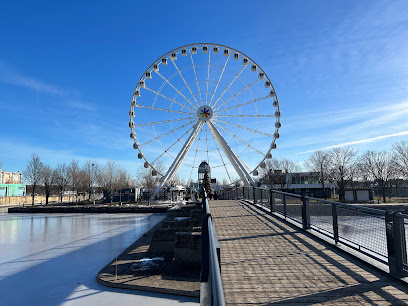
Notre-Dame Basilica of Montreal
Discover Montreal's spiritual heart: a breathtaking Gothic Revival basilica with a rich history and stunning interior.
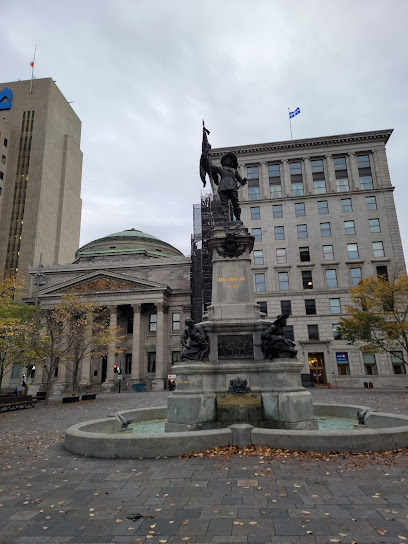
Mount Royal Park
Explore the lush landscapes and panoramic views of Mount Royal Park, a must-visit urban oasis in the heart of Montreal.
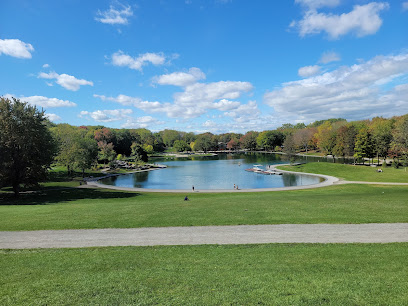
Saint Joseph's Oratory of Mount Royal
Discover the breathtaking Saint Joseph's Oratory of Mount Royal in Montreal, a stunning basilica and cultural treasure with panoramic city views.
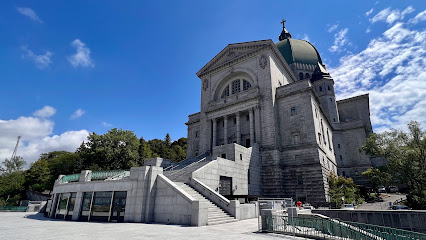
Montreal Biodome
Explore the unique ecosystems at the Montreal Biodome, where science meets nature in an immersive experience perfect for all ages.
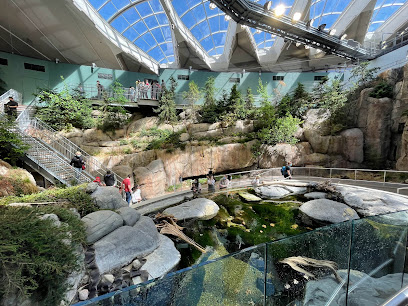
Montreal Museum of Archaeology and History
Unearth Montreal's past at Pointe-à-Callière, where history comes alive on the city's original settlement site in Old Montreal.

The Biosphere, Environment Museum
Explore environmental issues in Buckminster Fuller's iconic geodesic dome, a legacy of Expo 67 in Montréal's Parc Jean-Drapeau.
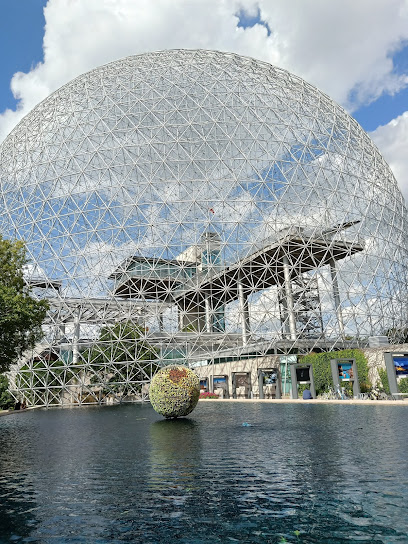
Dorchester Square
Explore Dorchester Square, a serene urban park in downtown Montreal, surrounded by iconic architecture and rich cultural heritage.
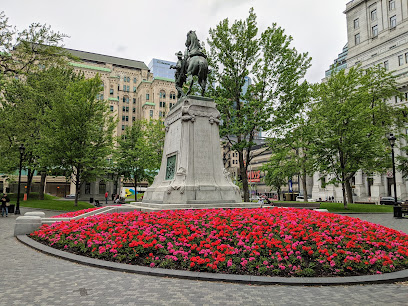
Montréal Underground City
Explore the extensive and vibrant Montréal Underground City, a unique shopping and cultural experience beneath the streets of this Canadian metropolis.
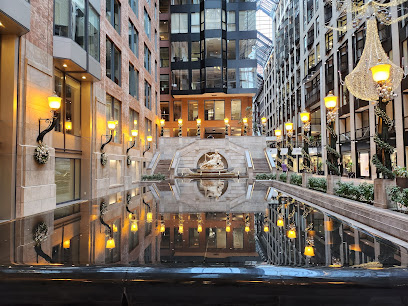
Camilien-Houde belvedere
Discover breathtaking views and nature's beauty at Camilien-Houde Belvedere, a must-visit scenic spot in Montreal with stunning city panoramas.
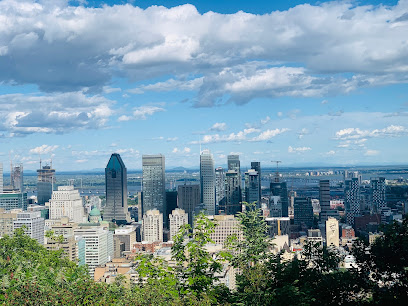
Mary, Queen of the World Cathedral
Experience the breathtaking beauty and spiritual serenity of Mary, Queen of the World Cathedral, a true architectural gem in the heart of Montreal.
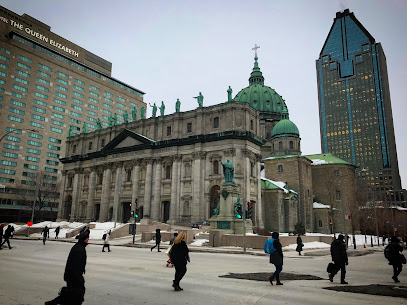
McCord Stewart Museum
Explore Montreal's captivating history through art and artifacts at the McCord Stewart Museum, a must-visit cultural gem in the heart of the city.
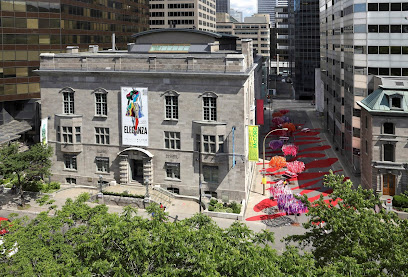
La Grande Roue de Montréal
Discover spectacular views of Montreal from La Grande Roue, a cultural landmark and iconic Ferris wheel offering unforgettable experiences.
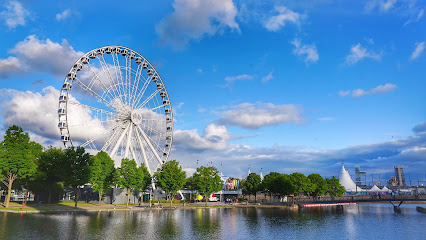
Clock Tower
A historic landmark in Montreal's Old Port, commemorating WWI sailors with stunning city and St. Lawrence River views.
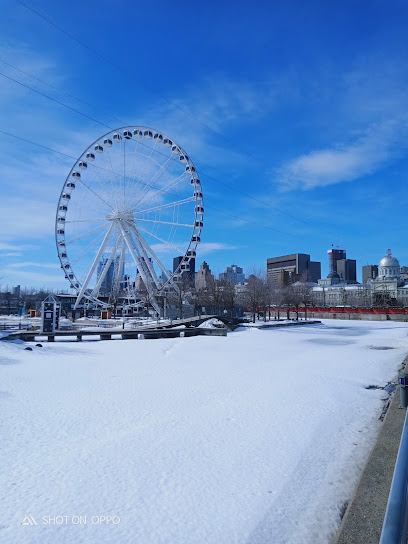
Notre-Dame-de-Bon-Secours Chapel
Explore the historic charm and artistic beauty of Notre-Dame-de-Bon-Secours Chapel in Montreal, a serene haven for tourists and a symbol of maritime heritage.
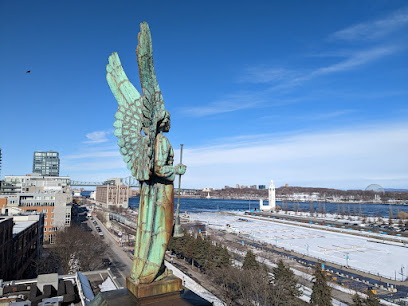
Unmissable attractions to see
Notre-Dame Basilica of Montreal
Explore the breathtaking Notre-Dame Basilica in Montreal, a stunning Gothic Revival masterpiece rich in history and artistic wonder.
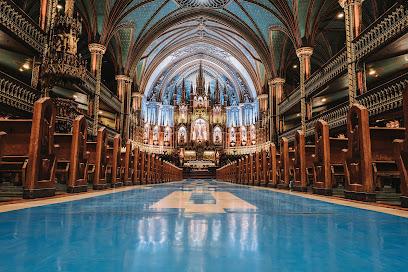
Jean Talon Market
Experience the vibrant flavors and lively atmosphere at Jean Talon Market, Montreal's iconic farmers' market showcasing local produce and culinary delights.
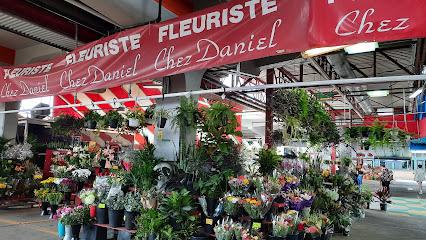
Mount Royal Park
Discover the natural beauty and recreational wonders of Mount Royal Park, a must-visit urban oasis in Montreal for nature lovers and adventure seekers.
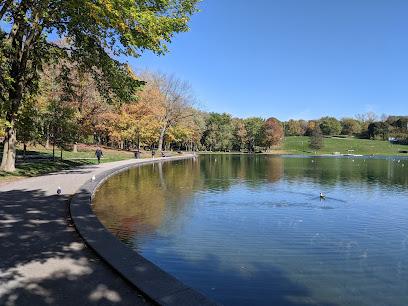
Montreal Botanical Garden
Explore the Montreal Botanical Garden, a lush paradise where diverse plant species and serene landscapes create a tranquil escape in the heart of the city.
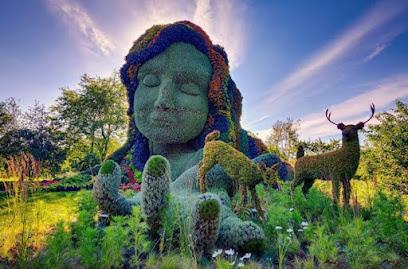
Centre Bell
Experience the thrill of live sports and concerts at Centre Bell, Montreal's iconic arena and concert hall, where unforgettable moments come to life.
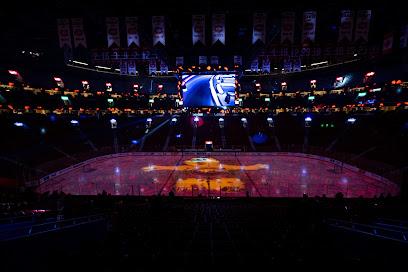
Place des Arts
Explore Montreal's vibrant artistic hub at Place des Arts, where music, dance, and theater come alive in a stunning cultural complex.
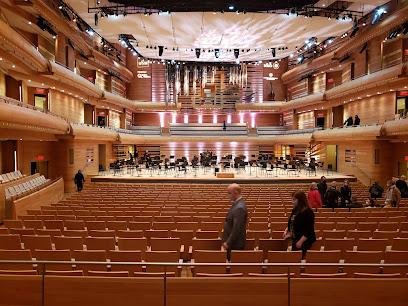
Saint Joseph's Oratory of Mount Royal
Discover the spiritual and artistic grandeur of Saint Joseph's Oratory, a must-visit landmark in Montreal offering stunning views and rich cultural experiences.
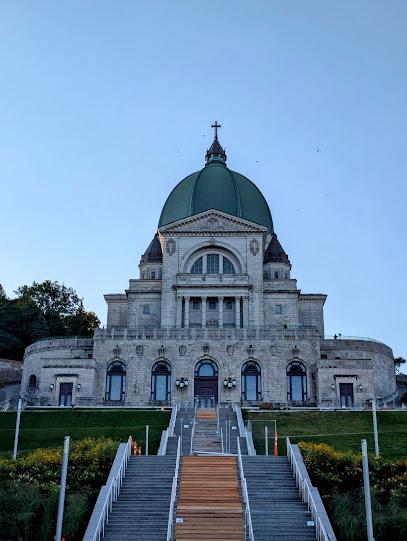
Casino de Montréal
Discover the excitement of Casino de Montréal, a premier tourist attraction offering gaming, dining, and entertainment in a stunning riverside setting.
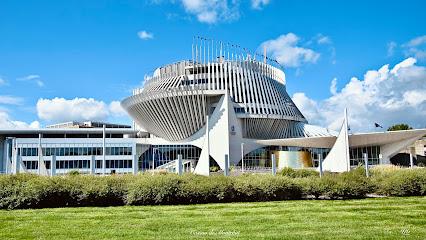
La Ronde
Experience the thrill of La Ronde, Montreal's premier amusement park with exhilarating rides, live performances, and unforgettable family fun.
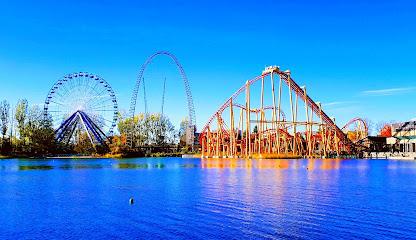
Montreal Biodome
Explore the Montreal Biodome: a unique attraction showcasing diverse ecosystems and a commitment to environmental conservation in the heart of the city.
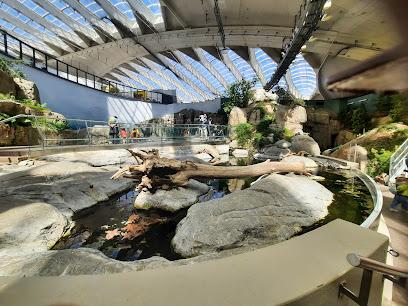
The Montreal Museum of Fine Arts
Discover a world of art at the Montreal Museum of Fine Arts, where every corner reveals a new masterpiece and cultural insight.
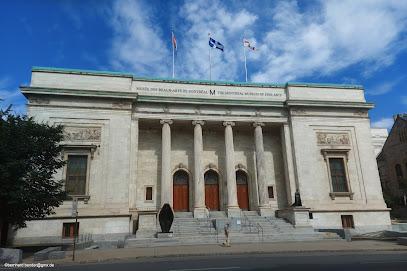
La Fontaine Park
Explore La Fontaine Park, a stunning urban oasis in Montreal, featuring lush landscapes, serene ponds, and vibrant recreational activities for all ages.
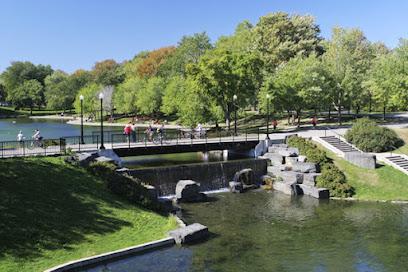
Montreal Olympic Park
Discover the iconic Montreal Olympic Park, a historical sports complex blending stunning architecture and cultural experiences in the heart of Montreal.
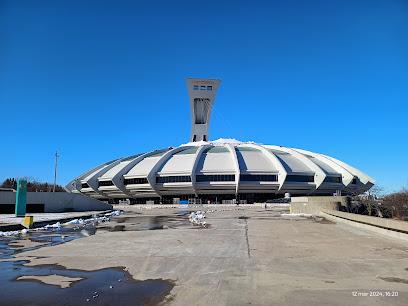
Montreal Museum of Archaeology and History
Discover Montreal's vibrant history at the Montreal Museum of Archaeology and History, where the past comes alive through captivating exhibits and archaeological treasures.
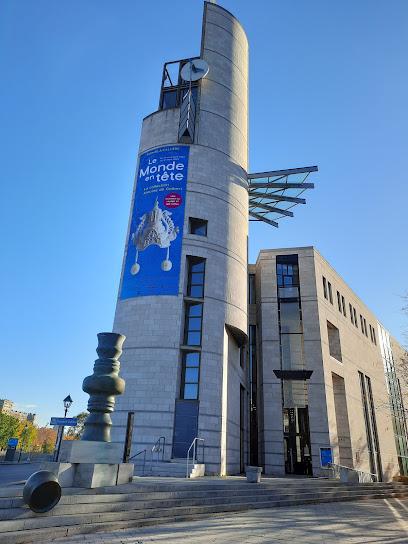
Montreal Science Centre
Explore the Montreal Science Centre, where science and technology come alive through interactive exhibits and immersive experiences in the heart of the city.
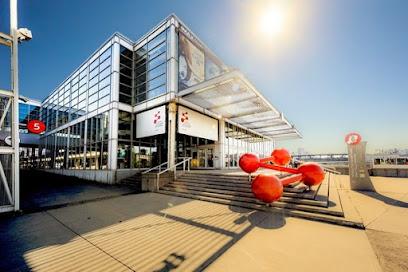
Essential places to dine
Modavie
Experience exquisite French cuisine and live jazz at Modavie, where culinary artistry meets vibrant culture in Old Montreal.
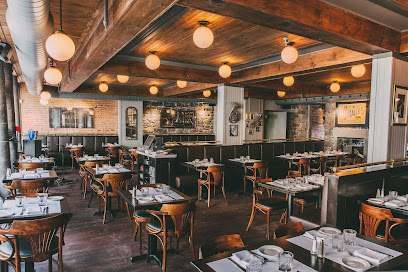
Les Enfants Terribles
Discover the exquisite flavors of French cuisine at Les Enfants Terribles in Montreal's vibrant Ville-Marie district.
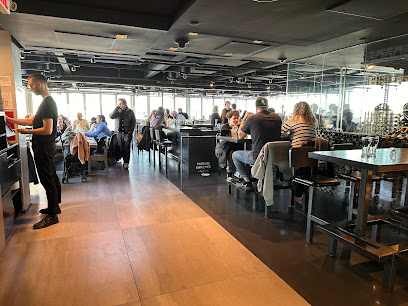
Deville Dinerbar
Discover Deville Dinerbar: A vibrant American diner experience with delicious food, refreshing drinks, and lively ambiance in Montreal.
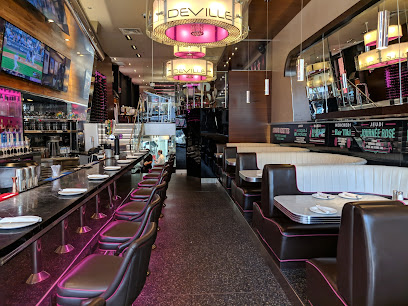
Wienstein & Gavino's
Experience authentic Italian cuisine at Wienstein & Gavino's, where each dish is crafted with passion and served with warmth in Montreal.
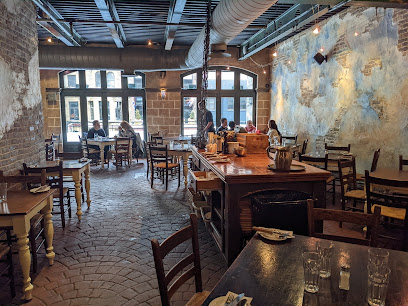
L'Express
Experience authentic French cuisine at L'Express in Montreal's vibrant Plateau-Mont-Royal district—where every meal is a delightful journey.
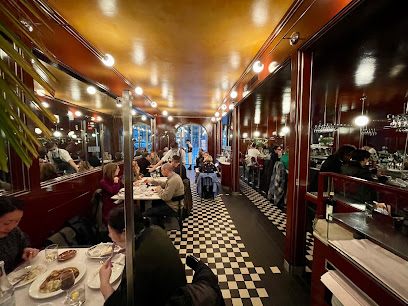
Maggie Oakes
Discover the culinary artistry at Maggie Oakes in Montreal – where fresh seafood meets expertly grilled steaks in an elegant setting.
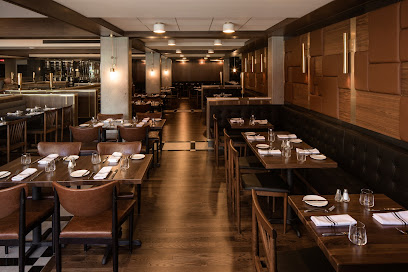
Brasserie 701
Experience exquisite French cuisine at Brasserie 701 in Montreal's lively Ville-Marie borough—where elegance meets flavor.
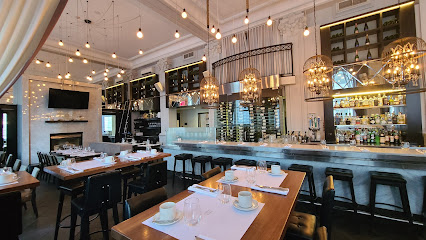
Stash Café
Experience authentic Polish cuisine at Stash Café in Montreal – where tradition meets taste in a cozy setting.
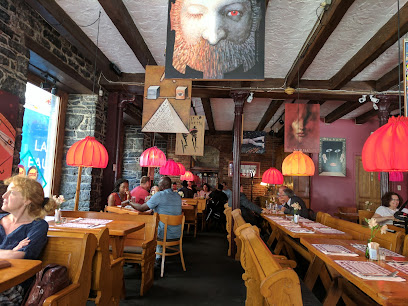
BOUILLON BILK
Discover the exquisite fusion of modern French cuisine at Bouillon Bilk in Montreal's vibrant Ville-Marie district.
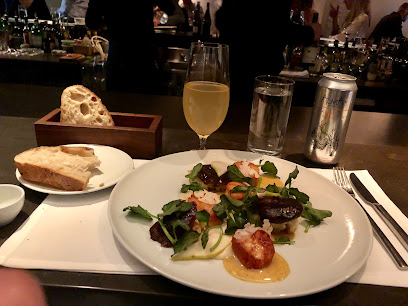
Holder
Experience exquisite French cuisine at Holder in Montreal - where every meal is a celebration of flavor and culture.
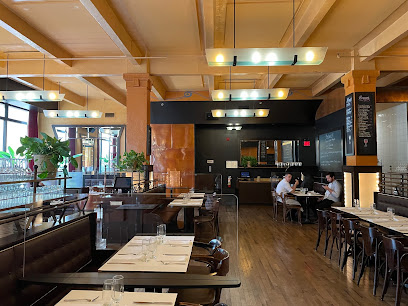
Kazu
Experience authentic Japanese cuisine at Kazu in Montreal—where vibrant flavors meet inviting ambiance for an unforgettable dining adventure.
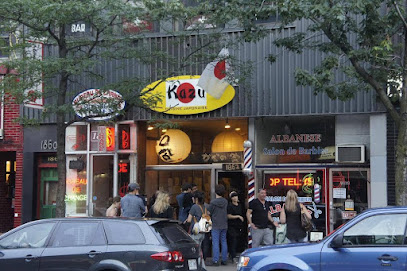
Restaurant Jérôme Ferrer - Europea
Discover culinary artistry at Restaurant Jérôme Ferrer - Europea in Montreal; indulge in exquisite French dishes that captivate your palate.
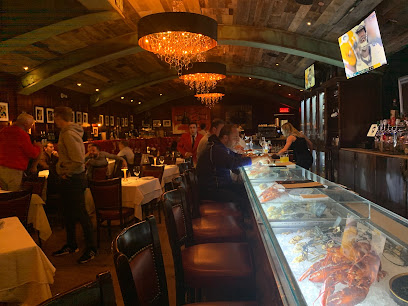
Foiegwa
Experience the exquisite blend of French and Québécois cuisine at Foiegwa in Montreal – where every dish tells a story.

Portus 360
Experience the best of Portuguese seafood cuisine at Portus 360 in Montreal – where tradition meets elegance.
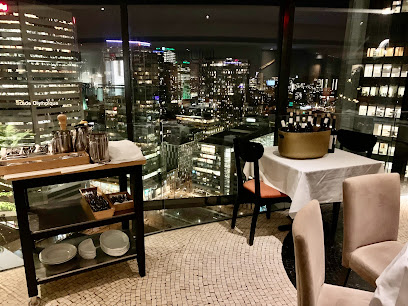
Le Pois Penche
Discover the charm of traditional French cuisine at Le Pois Penche in Montreal's Ville-Marie district.
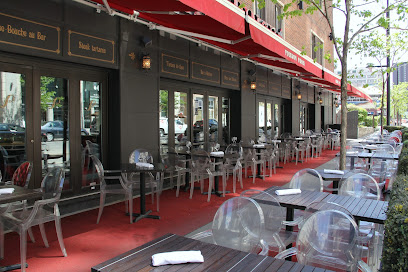
Markets, malls and hidden boutiques
Souvenir du Québec
Discover authentic Quebecois treasures at Souvenir du Québec, where every item tells a story of tradition and culture in the heart of Montreal.
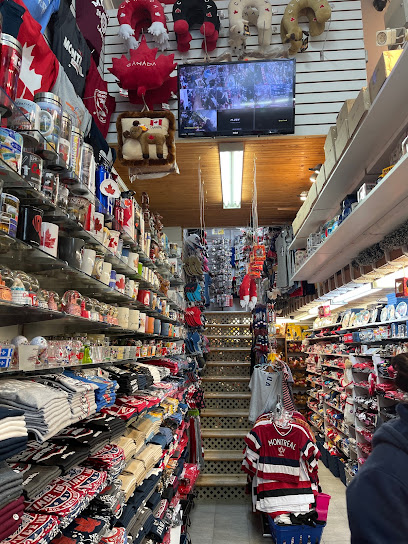
Le Magasin Général du Vieux-Montréal
Explore a unique gift shop in Old Montreal offering local crafts, fashion accessories, and home decor in a charming atmosphere.
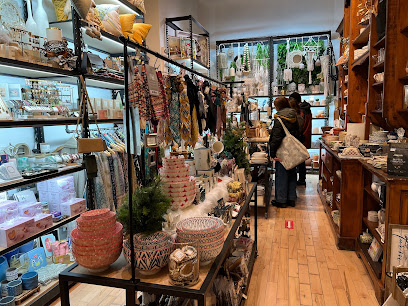
Kitsch'n Swell
Discover Kitsch'n Swell: A vibrant boutique in Montreal's Le Plateau-Mont-Royal, offering unique clothing and accessories that reflect local artistry.
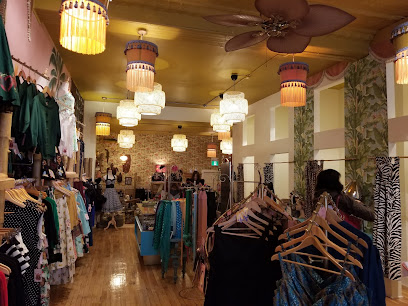
Kitsch à l'Os... ou pas
Explore the quirky charm of Kitsch à l'Os... ou pas, a unique gift shop in Montreal offering vintage antiques and boutique treasures.
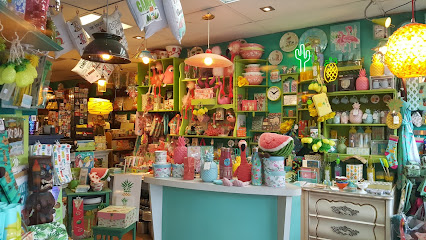
L'empreinte coopérative
Discover the artistry of Montreal at L'empreinte coopérative, where unique gifts and local craftsmanship come together in Old Montreal.
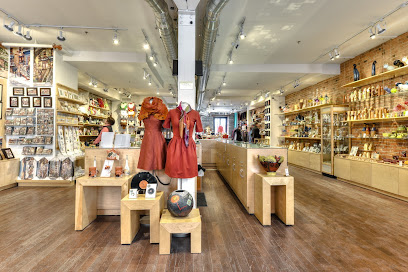
Souvenirs Quebec Je T’aime
Discover authentic Quebec souvenirs at Souvenirs Quebec Je T’aime, a gift shop celebrating local culture and artistry in the heart of Montreal.
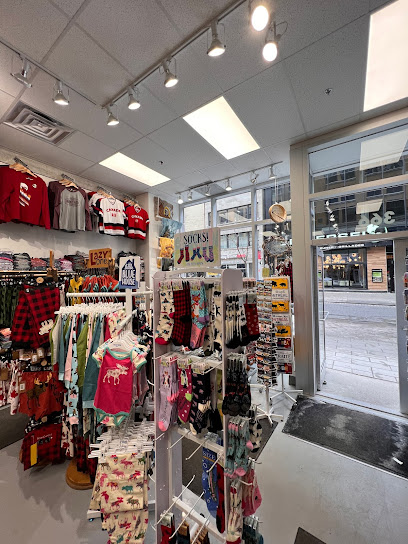
Annex Vintage
Explore the charm of vintage finds at Annex Vintage in the heart of Montreal's Le Plateau-Mont-Royal, where every item has a story.
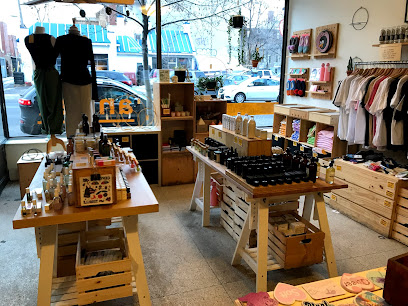
Marché Underground
Explore Marché Underground, Montreal's eclectic market for unique home goods, antiques, fashion, and collectibles in a vibrant atmosphere.

Jannat Souvenirs and sports
Discover a treasure trove of unique gifts and sports memorabilia at Jannat Souvenirs and Sports in the heart of Montreal.
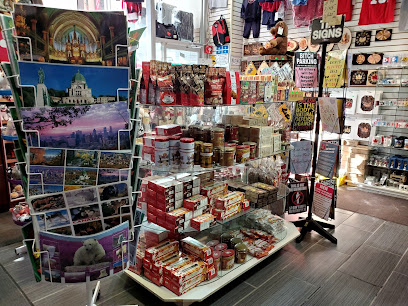
Boutique arloca
Explore Boutique arloca, where Montreal's creativity meets unique gift shopping in a charming atmosphere.
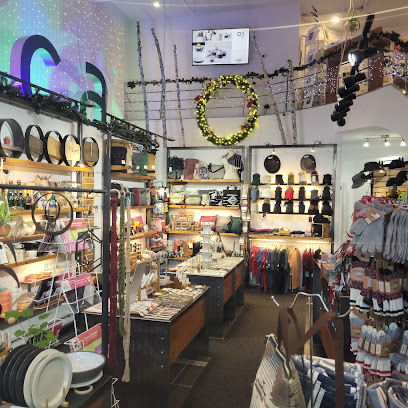
Le Trunkshop
Explore Le Trunkshop in Montreal for a unique selection of women's clothing and accessories, showcasing local talent and timeless fashion.
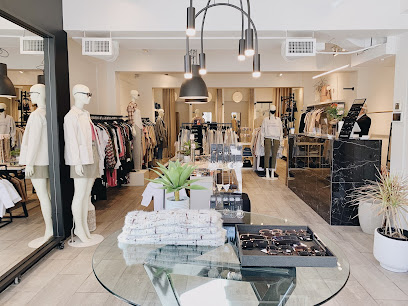
Bastix Souvenir
Explore Bastix Souvenir in Montreal for unique gifts and home goods that reflect the rich culture of Quebec.
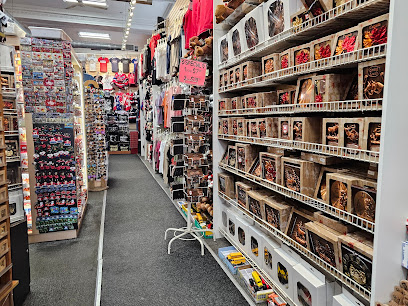
Souvenirs L'Ours blanc
Explore the heart of Montreal at Souvenirs L'Ours blanc, your go-to destination for unique gifts and authentic Canadian souvenirs.
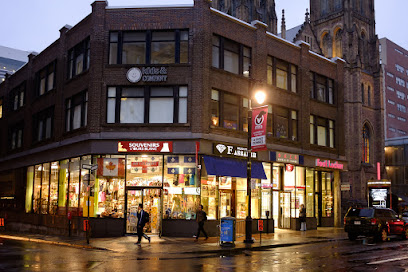
Boutique Unicorn
Explore Boutique Unicorn in Montreal for unique women's clothing that captures the city's vibrant fashion scene and artistic spirit.
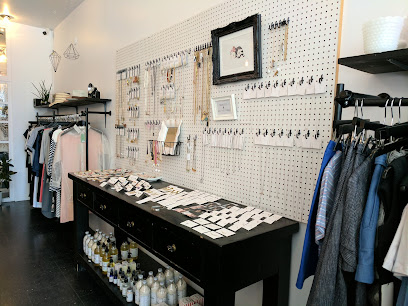
Boutique 101
Explore Boutique 101 in Montreal for a unique blend of electronics and fashion, offering a trendy shopping experience in the heart of the city.
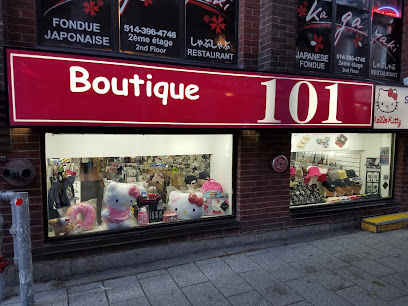
Essential bars & hidden hideouts
Bootlegger cocktail bar & cuisine
Experience the charm of Bootlegger, Montreal's cocktail bar featuring live jazz, oysters, and a cozy atmosphere for a memorable night out.
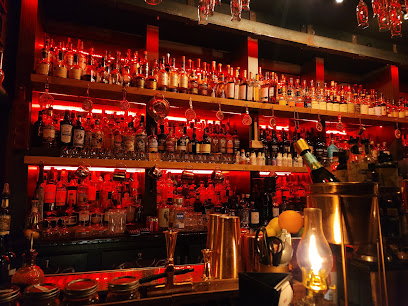
The Coldroom
Discover The Coldroom, Montreal's premier cocktail bar, where exquisite mixology meets a stylish ambiance for an unforgettable experience.
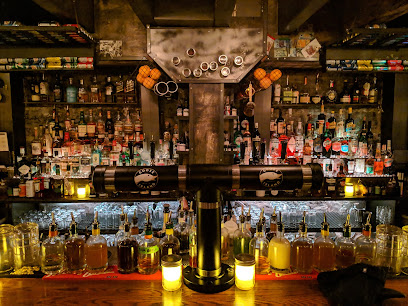
Atwater Cocktail Club
Discover the Atwater Cocktail Club, Montreal's trendy bar known for innovative cocktails and a vibrant nightlife atmosphere, perfect for your evening out.
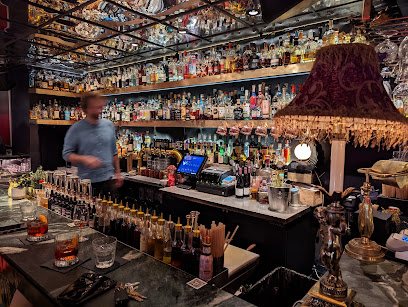
Bar Le Mal Nécessaire
Discover the vibrant cocktail culture of Montreal at Bar Le Mal Nécessaire, where unique drinks and an intimate ambiance await.
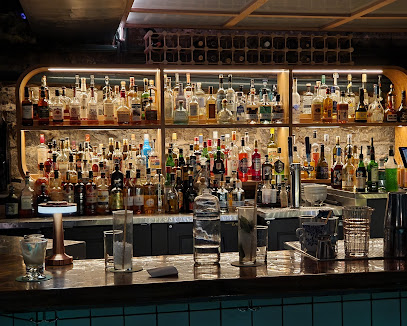
La Distillerie no.1
Discover the lively atmosphere and creative cocktails at La Distillerie no.1, a premier bar in the heart of Montreal.
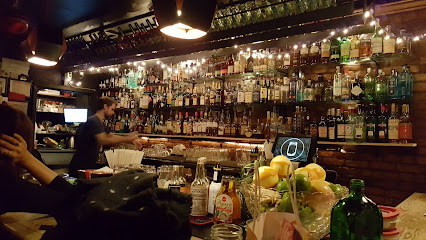
Cloakroom Bar
Discover the elegance of Cloakroom Bar in Montreal, where unique cocktails and a cozy atmosphere create an unforgettable nightlife experience.
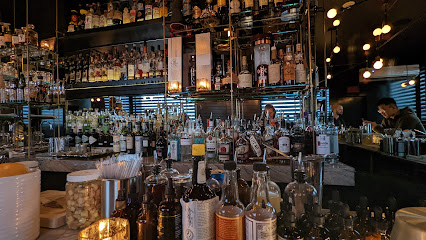
Milky Way Cocktail Bar
Discover Milky Way Cocktail Bar in Montreal – A haven for cocktail lovers with unique drinks and a relaxed atmosphere.
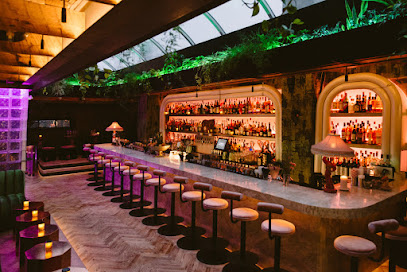
Bar Furco
Experience the vibrant nightlife at Bar Furco, a stylish bar in Montreal offering creative cocktails, lively music, and a welcoming atmosphere.
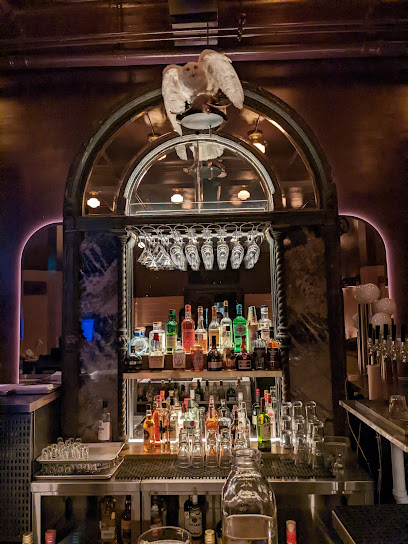
Bar Henrietta
Experience the vibrant nightlife of Montreal at Bar Henrietta, where innovative cocktails and a lively atmosphere await you.
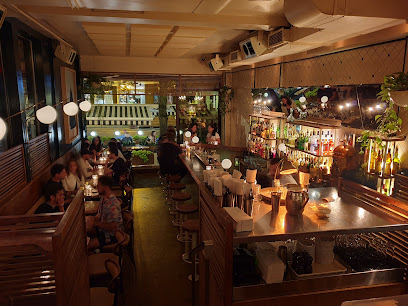
Bar Pamplemousse
Experience the vibrant nightlife of Montreal at Bar Pamplemousse, where cocktails and culinary delights come together in a lively atmosphere.
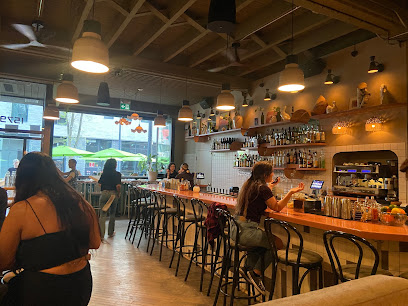
Philemon Bar
Discover Philemon Bar, where wine enthusiasts gather to savor exquisite selections in a chic Montreal setting, perfect for socializing and relaxation.
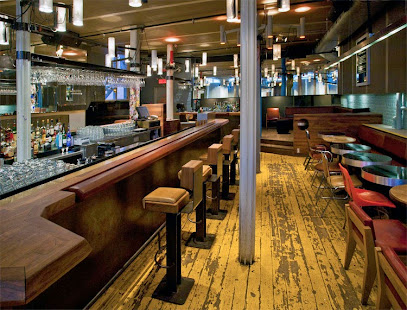
Grumpys Bar
Experience the vibrant ambiance and diverse drink selection at Grumpys Bar, a favorite spot in Montreal's Ville-Marie district for tourists and locals alike.
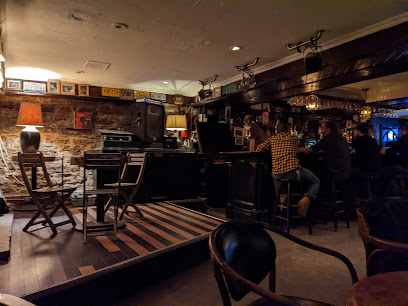
Nhậu bar
Experience the vibrant nightlife of Montreal at Nhậu Bar, known for its unique cocktails and lively atmosphere that keeps the night alive.
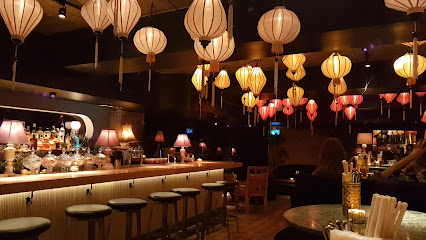
Bar Courcelle
Discover the vibrant nightlife at Bar Courcelle in Montreal's Southwest, where delicious drinks and a lively atmosphere await.

Local Phrases
-
- HelloBonjour
[bon-zhoor] - GoodbyeAu revoir
[oh ruh-vwahr] - YesOui
[wee] - NoNon
[nohn] - Please/You're welcomeS'il vous plaît / De rien
[seel voo pleh / duh ryen] - Thank youMerci
[mehr-see] - Excuse me/SorryExcusez-moi/Désolé
[ex-kew-zay mwah / day-zoh-lay] - How are you?Comment ça va?
[kohm-mohn sah vah] - Fine. And you?Bien. Et vous?
[byen. ay voo] - Do you speak English?Parlez-vous anglais?
[par-lay voo ahn-glay] - I don't understandJe ne comprends pas
[zhuh nuh kohm-prahn pah]
- HelloBonjour
-
- I'd like to see the menu, pleaseJe voudrais voir le menu, s'il vous plaît
[zhuh voo-dray vwahr luh muh-noo, seel voo pleh] - I don't eat meatJe ne mange pas de viande
[zhuh nuh mahnzh pah duh vyand] - Cheers!Santé!
[sahn-tay] - I would like to pay, pleaseJe voudrais payer, s'il vous plaît
[zhuh voo-dray pay-ay, seel voo pleh]
- I'd like to see the menu, pleaseJe voudrais voir le menu, s'il vous plaît
-
- Help!Au secours!
[oh suh-koor] - Go away!Allez-vous en!
[ah-lay voo zahn] - Call the Police!Appelez la police!
[ah-puh-lay lah poh-leece] - Call a doctor!Appelez un médecin!
[ah-puh-lay ahn meh-deh-sahn] - I'm lostJe suis perdu
[zhuh swee pair-doo] - I'm illJe suis malade
[zhuh swee mah-lahd]
- Help!Au secours!
-
- I'd like to buy...Je voudrais acheter...
[zhuh voo-dray zah-sheh-tay] - I'm just lookingJe regarde juste
[zhuh ruh-gahrd zhoo-st] - How much is it?Combien ça coûte?
[kohm-byen sah koot] - That's too expensiveC'est trop cher
[say troh shair] - Can you lower the price?Pouvez-vous baisser le prix?
[poo-vez voo bay-say luh pree]
- I'd like to buy...Je voudrais acheter...
-
- What time is it?Quelle heure est-il?
[kel uhr ay-teel] - It's one o'clockIl est une heure
[eel ay tun uhr] - Half past (10)Dix heures et demie
[dees uhr ay duh-mee] - MorningMatin
[ma-tahn] - AfternoonAprès-midi
[ah-pray mee-dee] - EveningSoir
[swahr] - YesterdayHier
[yehr] - TodayAujourd'hui
[oh-zhoor-dwee] - TomorrowDemain
[duh-mahn] - 1Un
[uhn] - 2Deux
[duh] - 3Trois
[twah] - 4Quatre
[kahr-truh] - 5Cinq
[sank] - 6Six
[sees] - 7Sept
[sept] - 8Huit
[wheat] - 9Neuf
[nuhf] - 10Dix
[dees]
- What time is it?Quelle heure est-il?
-
- Where's a/the...?Où est le/la...?
[oo ay luh/lah] - What's the address?Quelle est l'adresse?
[kel ay lah-dress] - Can you show me (on the map)?Pouvez-vous me montrer (sur la carte)?
[poo-vez voo muh mohn-tray (soor lah kart)] - When's the next (bus)?Quand est le prochain (bus)?
[kahn ay luh proh-shahn (bus)] - A ticket (to ....)Un billet (pour ....)
[uhn bee-yay (poor)]
- Where's a/the...?Où est le/la...?
History of Montreal
-
Montreal, originally called Ville-Marie, was founded on May 17, 1642, by French colonists led by Paul Chomedey de Maisonneuve. The city was established as a missionary settlement and trading post, anchored by the construction of the Fort Ville-Marie.
-
Throughout the 17th and 18th centuries, Montreal became a pivotal center in the North American fur trade. The city's strategic location along the St. Lawrence River facilitated trade between European settlers and Indigenous peoples. The fur trade significantly contributed to Montreal's growth and economic development.
-
Montreal came under British control following the Battle of the Plains of Abraham and the subsequent surrender of Quebec City in 1759. The Treaty of Paris in 1763 formalized British rule over New France, including Montreal. This period marked significant changes in governance, society, and economy.
-
Montreal played a role in the Rebellions of 1837-1838, where French-speaking Canadians (Patriotes) sought greater political reform and autonomy from British colonial rule. Although the uprisings were ultimately unsuccessful, they were instrumental in the eventual establishment of responsible government in Canada.
-
During the 19th century, Montreal emerged as an industrial powerhouse. The construction of the Lachine Canal in 1825 facilitated the city's industrial growth by allowing ships to bypass the treacherous Lachine Rapids. Montreal's factories and railways attracted a diverse workforce, contributing to its vibrant cultural mosaic.
-
Expo 67, held in Montreal in 1967, was one of the most successful World’s Fairs of the 20th century. The event celebrated Canada's centennial and showcased innovations and cultures from around the world. It left a lasting legacy on the city, including the development of iconic structures such as Habitat 67 and the Montreal Biosphere.
-
The 1960s and 1970s marked a period of intense social, political, and cultural change in Quebec, known as the Quiet Revolution. Montreal, as the province's largest city, was at the forefront of this transformation, which included secularization, the modernization of the economy, and the rise of Quebec nationalism.
-
Montreal hosted the 1976 Summer Olympics, which brought international attention to the city. Despite financial challenges and construction delays, the event was a significant cultural milestone. The Olympic Stadium, although controversial for its cost, remains an important landmark in Montreal.
-
Montreal is renowned for its rich cultural diversity. Throughout its history, the city has welcomed waves of immigrants from Europe, Asia, Africa, and the Americas. This multiculturalism is reflected in Montreal's neighborhoods, cuisine, festivals, and daily life, making it one of the most vibrant cities in North America.
-
Old Montreal (Vieux-Montréal) is the historic heart of the city, featuring cobblestone streets, 17th and 18th-century architecture, and landmarks such as the Notre-Dame Basilica. This area preserves the city's colonial past and is a major draw for tourists and history enthusiasts alike.
Montreal Essentials
-
Montreal is easily accessible by air, land, and rail. The primary airport is Montréal-Pierre Elliott Trudeau International Airport (YUL), which serves numerous international and domestic flights. Travelers can also reach Montreal by train via VIA Rail Canada, which connects to major Canadian cities. For those driving, Montreal is accessible via major highways, including Autoroute 20 from the west and Autoroute 40 from the east.
-
Montreal boasts an efficient public transportation system operated by the Société de transport de Montréal (STM), which includes buses and a metro system with four lines. Biking is also popular, with BIXI bike-sharing stations available across the city. Taxis and rideshare services like Uber are readily available. For a more scenic route, consider taking a boat across the St. Lawrence River.
-
The official currency of Canada is the Canadian Dollar (CAD). Credit cards are widely accepted, but it’s advisable to carry some cash for smaller establishments and markets. ATMs are plentiful throughout the city. Tipping is customary in restaurants, with 15-20% being the norm.
-
Montreal is generally a safe city, but standard precautions should be taken. Avoid walking alone at night in less populated areas such as parts of Hochelaga-Maisonneuve and St-Michel. Keep an eye on your belongings in crowded places like the metro and tourist hotspots. Emergency services can be reached by dialing 911.
-
In case of emergency, dial 911 for police, fire, or medical assistance. Montreal has numerous hospitals and clinics with high standards of care. Pharmacies are also widely available for minor health issues. It is advisable to have travel insurance that covers medical emergencies.
-
Fashion: Do dress in layers as weather can be unpredictable. Stylish, casual wear is common. Avoid overly revealing clothing. Religion: Do respect religious sites and practices. Remove hats and speak quietly in churches. Public Transport: Do stand to the right on escalators to allow others to pass on the left. Don’t eat or drink on public transport. Greetings: Do greet people with a friendly ‘Bonjour’ or ‘Salut’. Handshakes are common in formal settings. Eating & Drinking: Do try local specialties like poutine and bagels. Tipping 15-20% in restaurants is customary. Don’t refuse food or drink when offered as it’s considered impolite.
-
To experience Montreal like a local, visit Jean-Talon Market for fresh produce and local delicacies. Enjoy a leisurely walk or bike ride along the Lachine Canal. Explore the vibrant neighborhoods of Plateau Mont-Royal and Mile End for their unique shops, cafes, and street art. Don’t miss the summer festivals like Jazz Fest and Just for Laughs.
Trending Landmark in Montreal
-
Vieux-Port de Montréal
-
Notre-Dame Basilica of Montreal
-
Mount Royal Park
-
Saint Joseph's Oratory of Mount Royal
-
Montreal Biodome
-
Montreal Museum of Archaeology and History
-
The Biosphere, Environment Museum
-
Dorchester Square
-
Montréal Underground City
-
Camilien-Houde belvedere
-
Mary, Queen of the World Cathedral
-
McCord Stewart Museum
-
La Grande Roue de Montréal
-
Clock Tower
-
Notre-Dame-de-Bon-Secours Chapel
Nearby Cities to Montreal
-
Things To Do in Burlington
-
Things To Do in Stowe
-
Things To Do in Lake Placid
-
Things To Do in Montpelier
-
Things To Do in Halifax
-
Things To Do in Ottawa
-
Things To Do in Middlebury
-
Things To Do in Killington
-
Things To Do in Rutland
-
Things To Do in Hanover
-
Things To Do in Woodstock
-
Things To Do in Quebec City
-
Things To Do in Saratoga Springs
-
Things To Do in Laconia
-
Things To Do in Bennington


















